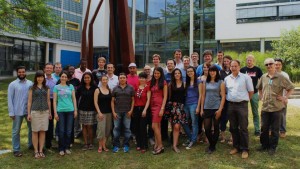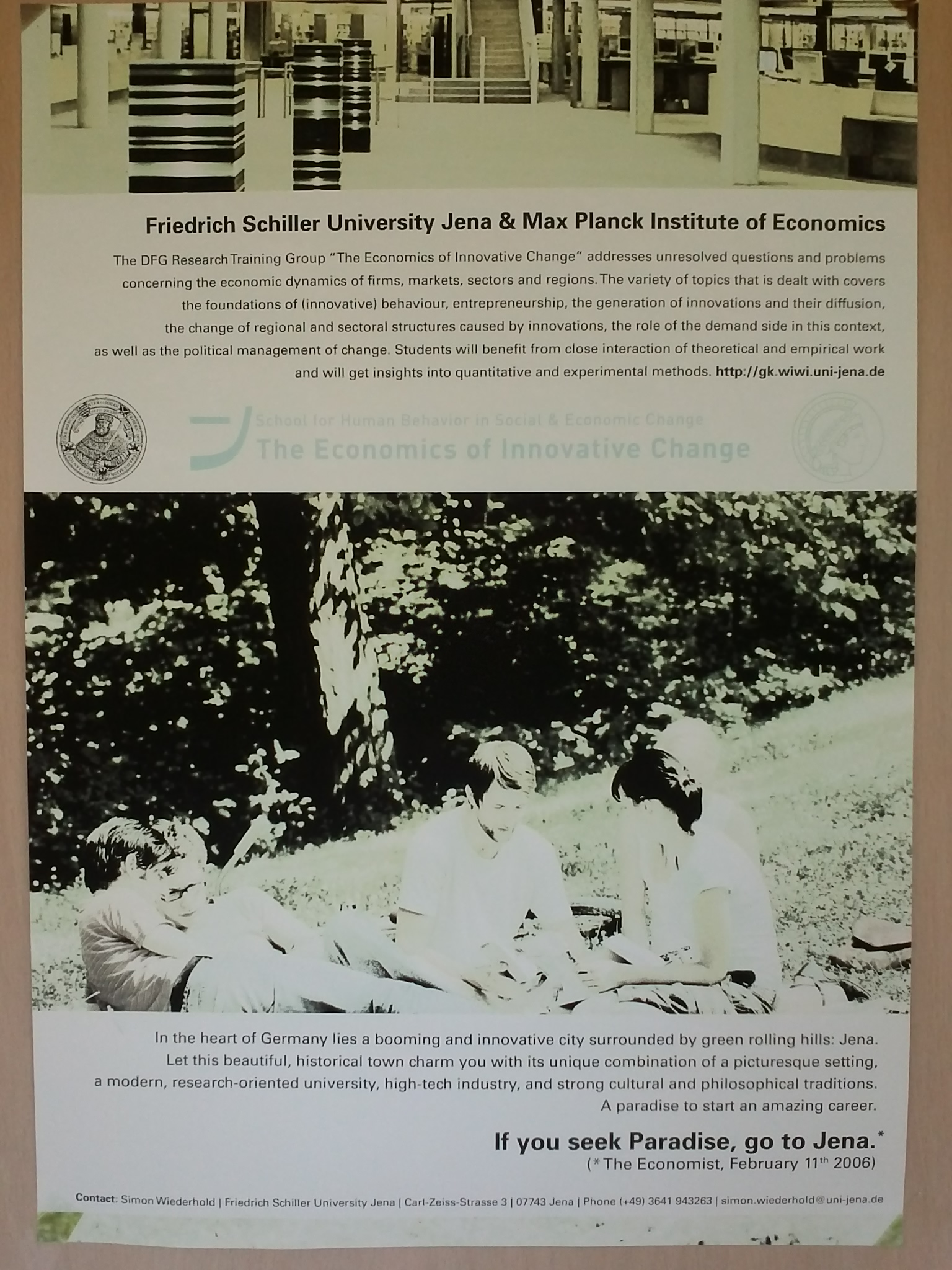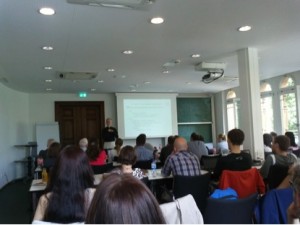
Pre-Departure:
“Google your future”
Do you know where you are going to work after your studies, including job title & company? If so, then doing an exchange is not as beneficial as for someone who doesn’t have a clue yet. There are many motivations that could lead you to think about an exchange. Friends brag about how cool the parties are in Europe, how many good grades you get at some universities or even that they made friends for life or found that life partner. Those stories make one start a thought process and that’s very important. Google your future means that you should start by looking for topics of your interest online. More specifically, look who publishes in that area of expertise. Where are those people based? Do those institutes or universities offer summer schools or exchange programmes? Are there conferences where they present, which include workshops? For example, I wanted to do an innovation management summer school in London. I found it by chance while I was looking for contact information of a professor. It seemed great. Knowing that there are such workshops, I quickly found more than one seemingly suitable programme by going through Google search with keywords like “summer school”, “academy” “postgraduate workshop”, “economics” and “innovation”. Doing that research made me understand better what I really wanted to achieve. It was getting out there to rub shoulders with bright minds in my area of interest. However, there are fantastic opportunities listed on the PGIO website. So you don’t have to go through all the trouble of finding a suitable programme by yourself.
“Excel before you Word”
5000 Pounds was the total cost I found for the first supposedly great programme (a summer school in London). Obviously, they don’t put those numbers on the front page of the programme’s website. Nonetheless, I found more (similar) programmes at other institutions and applied for two (Seoul, South Korea and Jena, Germany). After doing more research on costs, I made an Excel spread sheet and made a detailed plan. This made me realise that only Jena would be feasible. They offered their programme for a little contribution of 150 Euros, which included snacks, tea, coffee and a hot meal for the first two weeks. Also, I was more and more amazed when reading about their programme. I liked it much more then all alternatives so I felt lucky. Once I knew it would be possible I began talking to the PGIO and was able to prepare an informed application in Word.
“Travel plan Version 3.1.4, revision B alpha 3”
Speak with friends and people at the destination (many summer schools now assign you someone to assist you with arrangements when you come from overseas – this is enormously helpful – make use of this friendly offer). Comparing airlines prices is a basic task you will do. But consider the following: If your flight goes via Dubai, London, or Amsterdam, and the airline offers you to have a few days free layover. Do it, by any means (Don’t forget to make sure the visa requirements are met). I went via London and Hamburg, and thus got a chance to visit museums, banks, and an Airbus factory. I was also planning on attending a conference in London on the way to Germany but eventually the conference organisers didn’t accept my paper, so I would have had to pay 325 Pounds to attend as a guest. In any case – try to add cheap or free ‘benefits’ to your trip while you are already ‘on the road’. But don’t be upset if you have to change your plans many times. Priority should always be the learning experience around you exchange programme.
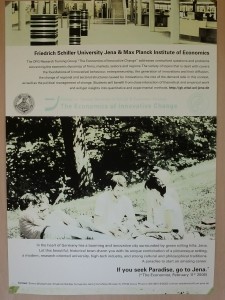
Summer School:
The programme is called: The Graduate College ‘The Economics of Innovative Change’ (GSBC-EIC) at the Friedrich Schiller University Jena and the Max Planck Institute of Economics, who jointly organised the 7th Summer Academy on ‘Innovation and Uncertainty’. This programme is dedicated to the organiser’s own PhD students, but also to outstanding PhD students and senior researchers from all over the world. I was allowed to attend because I am a specialist in the economics of innovation and technological change. The Summer Academy consisted of two parallel Summer Schools, one designed by the GSBC-EIC and one by the IMPRS-Uncertainty. The topics of the 2013 GSBC-EIC Summer School included: industrial economics, heterogeneous agent modeling, environment and innovation, evolutionary demand theory and innovation, innovation policy, experimental economics, economics of patent data, social psychology and group behaviour. The great deal about the combined summer schools is that I needed only to be accepted for one of them. Then, the organisers are happy for you to also attend the sessions of the other summer school. I did this, too. I went to all sessions of the Graduate College (they call it ‘GK’) but then also attended sessions of the International Max Planck Research School on Adapting Behavior in a Fundamentally Uncertain World (‘IMPRS’). I would recommend to take a look on their website to read in detail what is being done (http://www.imprs.econ.mpg.de/). The IMPRS is of a high level and you can be sure to get into significant theoretical and technical discussions. The ‘GK’ proved to be more beneficial to me because there are very interesting theory sessions, but also practical sessions and a group project where you can also discuss your own research topics with a panel of experts. To apply for the programme I submitted a paper, which I also presented during the programme. The feedback was very helpful towards the further development of the paper and my research in general.
There were many prominent lecturers from the Friedrich-Schiller-University, the Max Planck Institute, but also great guest speakers from Harvard, Duke, Yale, LMU Munich, Griffith and other top universities.
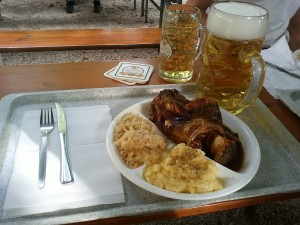
During the week we started at 8:15am and often worked until 8:00 pm. This should not be taken lightly, but it was not only possible, it was also worth it. During the weekend there were tours to other cities, BBQ and volleyball matches. Most of the lecturers from the university and the institute joined us, which was very nice. Jena itself is a great place for the format of a summer school. Everything is close by and there are a few great things to do in summer. Public transport is safe but you could as well buy a bicycle for the time and sell it again. There are many students and thus a vibrant nightlife, too. Since the university itself had a break during the summer school, there is little traffic and its much calmer on campus than during semester at Stellies. You will find a mall, mountains and even a Rugby team in Jena. So you will not miss home so much. Everybody in the programme speaks good English and the programme organisers really do a lot to have you have a fantastic time. This includes a variety of social events like a farewell BBQ in the Botanic Garden.
“Judging my own skills”
I only had one co-student who was also interested in innovation economics at Stellies. So I was never really sure if I was good in that field. Now in Jena, with all those specialists in that field I was often surprised. On the one hand, my confidence was often bumped, because the specialists with doctorate degrees obviously had done more research in that field. On the other hand, it was great to hear others being concerned with the same topics and problems. It gave me confidence that I quickly understood those problems that I was yet unfamiliar with. The ability to adapt, I am sure, I have exercised during my postgraduate studies in Stellenbosch. I can say that, more generally, the engagement with the other participants and presenters has balanced my view and judgements on my skills. I can now be more confident about judging my expertise and that comes in very handy for job applications. Stellenbosch has given me an excellent education and we need not be shy in interactions with students or graduates from Oxford and other European universities.
Just something to think about: For a Phd in economics at the London School of Economics, one has to bring 65% from Stellenbosch and 85% from a US university.
http://www.lse.ac.uk/study/informationForInternationalStudents/countryRegion/Home.aspx
The University of Stellenbosch is ranked 21st in Times Higher Education BRICS & Emerging Economies Rankings 2014. Further, South Africa, as a whole, is ranked 11th in the world for attracting international students in 2009 according to the UNESCO.
“Freedom to pursue aspirations”
Retrospective, the rules and regulations at Stellenbosch University have allowed me to pursue my aspirations in regards to choosing electives at the Futures Institute, Sustainability Institute and even at the Business School. Then also, I received support for this summer school. For all this I am very thankful and I highly recommend the University.
Not that I regretted coming to Stellies, but at times, when there was only ‘work, work, work’ I thought there is little pleasure. Once I was away for a few weeks, I actually missed Stellenbosch and when I returned I enjoyed the last months of my degree even more. This place is special.
‘Another exchange’
Yet, I am not sure if I am going to do a Phd. For now I am seeking full time employment, but I am also in the process of preparing a publication of my research that I had presented during my summer school experience. In case I’ll do my Phd, I would certainly seek to spend some time abroad again. The learning effects are maximised with collaborative dynamics. And eventually one does give benefits to co-students or researchers in Stellenbosch, by bringing back some new knowledge. Just recently, I was able to support a researcher with expertise on a statistics program that I got introduced to during my time in Jena.
